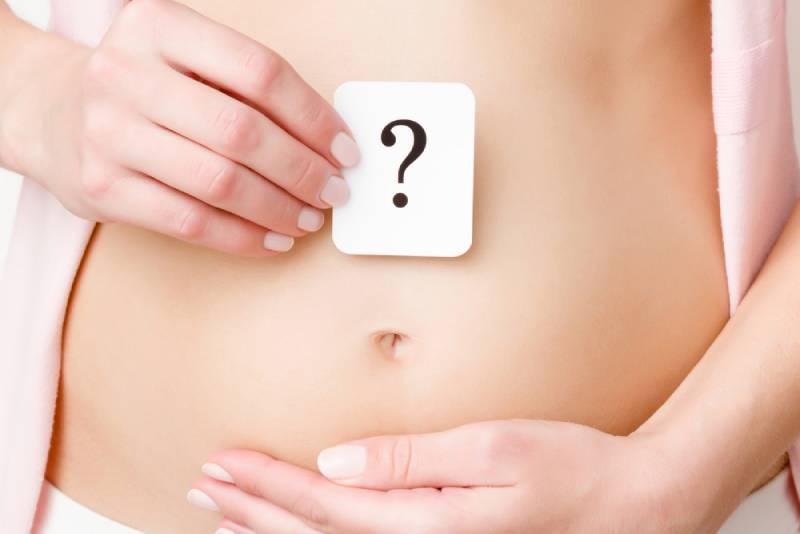If you have any symptoms of pregnancy, the best thing is to consult with your healthcare provider. However, there are some early pregnancy signs that you will be able to pick up on without a doctor’s examination.
They’re known as presumptive signs of pregnancy.
These can still be tricky to rely on because there are many signs that are very close to PMS symptoms and these can also be caused by certain infections, stress, or a variety of other things.
There are many different signs of pregnancy but you’ll see that not all are completely reliable.
That’s why taking a pregnancy test or going to an obstetric clinic to confirm if you are really pregnant is always the best option.
There are, however, three categories of pregnancy signs and symptoms to take note of. Prenatal care is very important and that’s why each of these signs is important and should be taken seriously.
Categories Of Pregnancy Signs

• Presumptive signs of pregnancy (possibility of pregnancy) – some physical changes that a woman herself can see and feel.
• Probable signs – those that your health care provider will be able to observe and confirm. They’re more probable than presumptive, but still, they aren’t a definite sign of pregnancy.
Ballottement (diagnosing pregnancy by tapping the cervix), cervical changes such as Chadwick’s sign (discoloration of the cervix, it becomes blue or purple), Hegar’s sign (softening of the uterus) or Goodell’s sign (softening of the cervix), uterine enlargement, Braxton Hicks contractions (false labor pains)and a positive pregnancy test are all probable signs of pregnancy.
• Positive signs of pregnancy – the most accurate category. They can’t be mistaken and they’re the best evidence that you’re pregnant.
There are some completely sure signs of pregnancy such as being examined in your doctor’s office by a Doppler and hearing fetal heart sounds, or getting the ultrasound and observing the fetal heart rate or any other fetal movements that can only be felt by a professional.
There is also a thing called “false pregnancy”. This happens when a person has an immense desire to be pregnant and have a baby, and they often feel some of these presumptive or even probable signs and symptoms of pregnancy.
The Presumptive Signs Of Pregnancy
These are the symptoms that a pregnant woman experiences and can identify herself, without having to visit the doctor.
However, if you do have any of these signs and you’re suspicious that you might be pregnant, the best thing would be to make an appointment with a physician.
1. Amenorrhea (the absence of the menstrual period)

If you’ve always had a regular menstrual cycle, you’ll probably be worried if your period is late or missed because the absence of menstruation is one of the first signs of pregnancy.
However, that isn’t the only reason for amenorrhea. It may be caused by many other health conditions, besides pregnancy.
For example, stress, hormone imbalance, early menopause, endocrine disorders, or taking birth control can all be possible reasons for your missing period.
If you notice any changes to your menstrual cycle, especially if you miss three or more menstrual periods, you should definitely consult a gynecologist or your healthcare provider.
2. Emesis or nausea (also known as morning sickness)

Most pregnant women have nausea, especially during the first trimester and it’s often very unpleasant and stressful for most ladies.
That’s why morning sickness is also known as a presumptive sign of pregnancy, but it isn’t always. Flu, frequent traveling, or food poisoning can all be causes for feeling nauseous.
However, if you have both nausea and your period is missing, those are very good reasons to take a pregnancy test, just to be sure.
3. Breast changes

Most pregnant women don’t notice any breast changes in their early pregnancy. And no, not all women will have breast enlargement while pregnant or while they’re breastfeeding, even though it’s very common.
If you’re pregnant, you’ll feel that something is strange with your breasts. They’ll feel more sensitive and much more tender.
The brown part around your nipples (areola) will be bigger and darker and some small bumps may appear on your nipples. During the second trimester, your breasts will be producing colostrum that may also leak out.
4. Skin changes

There are many skin changes and issues during the gestation period.
You may develop some dark patches on your face, especially on the forehead and around the nose and lips. Women like to call it ‘the mask of pregnancy’ while the medical term is chloasma or melasma.
There are many hormonal changes in a pregnant woman’s body and that can make your skin a little darker. If you’re pregnant, you may even experience the appearance of linea nigra, a dark line on your abdomen.
Also, one of the most common skin changes in pregnancy is stretch marks on your stomach. The baby is growing and with it, your stomach is too, and that causes your skin to stretch, which leaves those marks.
If the pregnancy is confirmed for sure, you have nothing to worry about because those are all normal changes.
5. Frequent urination

Increased urinary frequency, along with nausea, is probably the most exhausting sign. You can’t sleep well and you can’t go anywhere because you have to go to the toilet so often!
However, this symptom isn’t the most reliable way to confirm pregnancy. There are also some other possible causes for frequent urination, such as urinary tract infection or overactive bladder.
6. Fatigue

As we all probably know, there are tons of hormonal changes that occur in a pregnant woman’s body, and sometimes it’s normal that your body is tired because of it.
Fatigue is most common in the first trimester as all those changes are new for every pregnant lady, even if it’s not their first pregnancy because every pregnancy is unique.
But, you should know that there are so many other things that can cause fatigue and alone, it is probably the most unreliable sign of pregnancy. It can also be caused by anemia, stress, too much work, some malignant disease, or even the flu.
7. Increased food cravings

It’s very common during pregnancy to have some odd food cravings and have the desire to eat unusual foods and combinations of food. Once again, this is probably caused by the hormonal changes.
Still, stress or mental health conditions such as depression or anxiety can also increase your appetite, especially because sometimes we’re all looking for comfort in our favorite food.
8. Quickening

The first fetal movements usually occur around 16-20 weeks of pregnancy. Of course, every pregnancy is different so don’t worry, it may also occur a little bit earlier or later.
However, it’s possible to feel the quickening in your stomach without being pregnant. It’s a phenomenon probably caused by gas pains or some abdominal sounds such as intestinal rumbling.
9. Frequent mood changes

Again, this is a symptom caused by too many hormonal changes during pregnancy. Mood swings are most common during the first trimester because it’s when the most changes occur in your body.
But, as you probably already know, those frequent mood swings can also be caused by PMS or some mental health issues.
Regardless, these mood changes shouldn’t be taken lightly and you should consult with a professional and get to the bottom of them.
10. Back pain

Back pain is a very common symptom of early pregnancy. Your body is preparing for the baby and labor, most of your ligaments are becoming softer and your muscles are stretching, too.
You should know, however, that many other health issues can cause back pain. Certain past injuries or infections can damage the nerves or ligaments on your back and cause the pain.
11. Insomnia

Most pregnant ladies have sleep problems, especially in early pregnancy because they have back pain or nausea, or some other pregnancy symptom causing a lack of proper sleep.
However, insomnia can also be caused by so many other physical and mental health disorders. If you have any of the symptoms mentioned above along with sleep problems, it’s time to buy yourself a pregnancy test.
In Conclusion
Even though presumptive signs of pregnancy can make you suspicious of being pregnant, you shouldn’t blindly believe in them because most of them can be also caused by some other health conditions.
Of course, the most dependable way to determine whether or not you’re pregnant is a pregnancy test. You can take a blood pregnancy test at your health care provider’s office, or you can take a urine test at home.
However, you should know that a blood pregnancy test is about 99 percent accurate, while a urine test is less reliable. Read the instructions carefully and do it properly or it can show false results.
The placenta begins to form immediately after the embryo has been implanted and then, the levels of human chorionic gonadotropin (hCG), also known as the pregnancy hormone, start to increase.
If the test shows you have increased levels of hCG in your urine or blood, congratulations, you’re probably expecting a baby!
The most reliable category of pregnancy signs is positive signs. The doctor can’t make a mistake with an ultrasound examination and hearing the fetal heartbeat can definitely not be false or mistaken.
However, if you have any of the signs listed above, you should consult your health care provider about it. It doesn’t have to mean that you’re pregnant, it may just be a sign of some other changes in your body. Whatever it is, it’s better to find it out on time.
Like this post? Please share or pin it for later. You can also stay in the loop and follow us on Facebook, Instagram or Pinterest.

This post contains affiliate links. Please see our full disclosure for more info.

